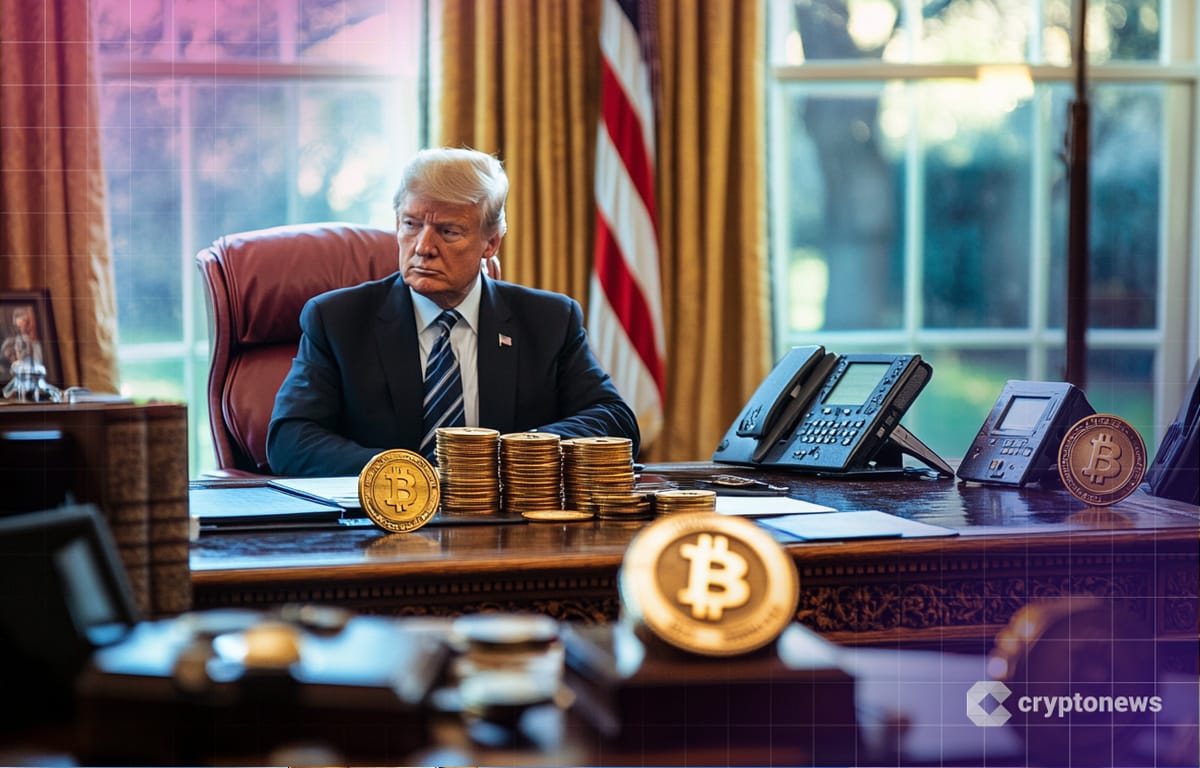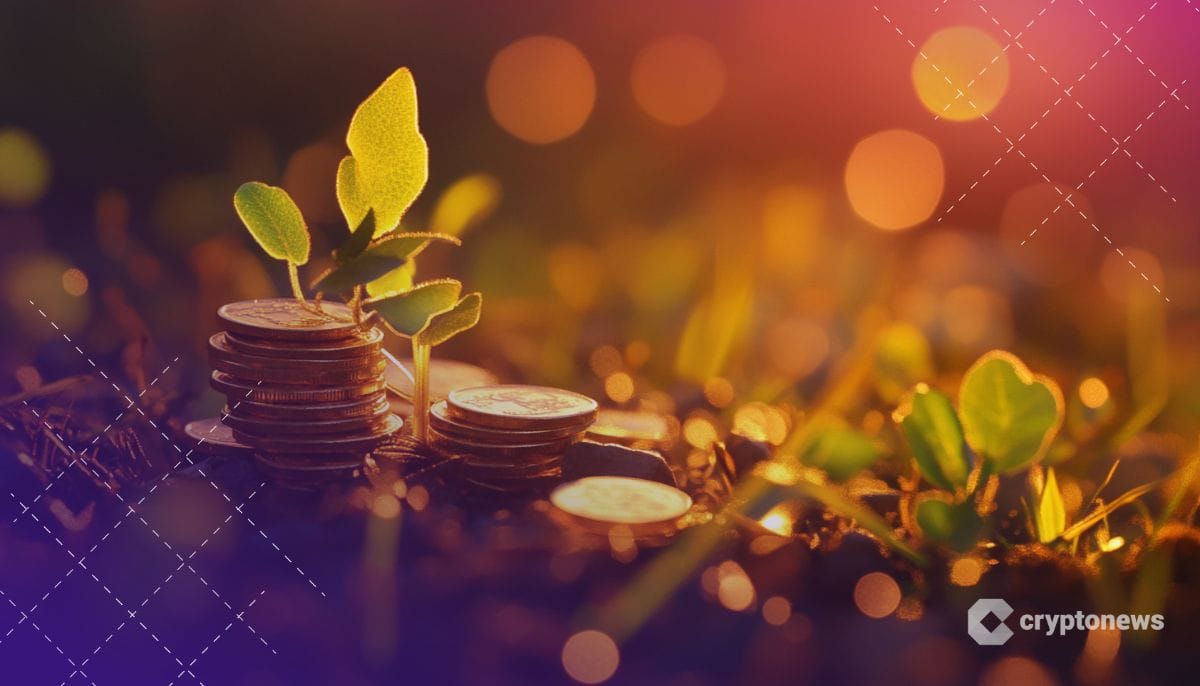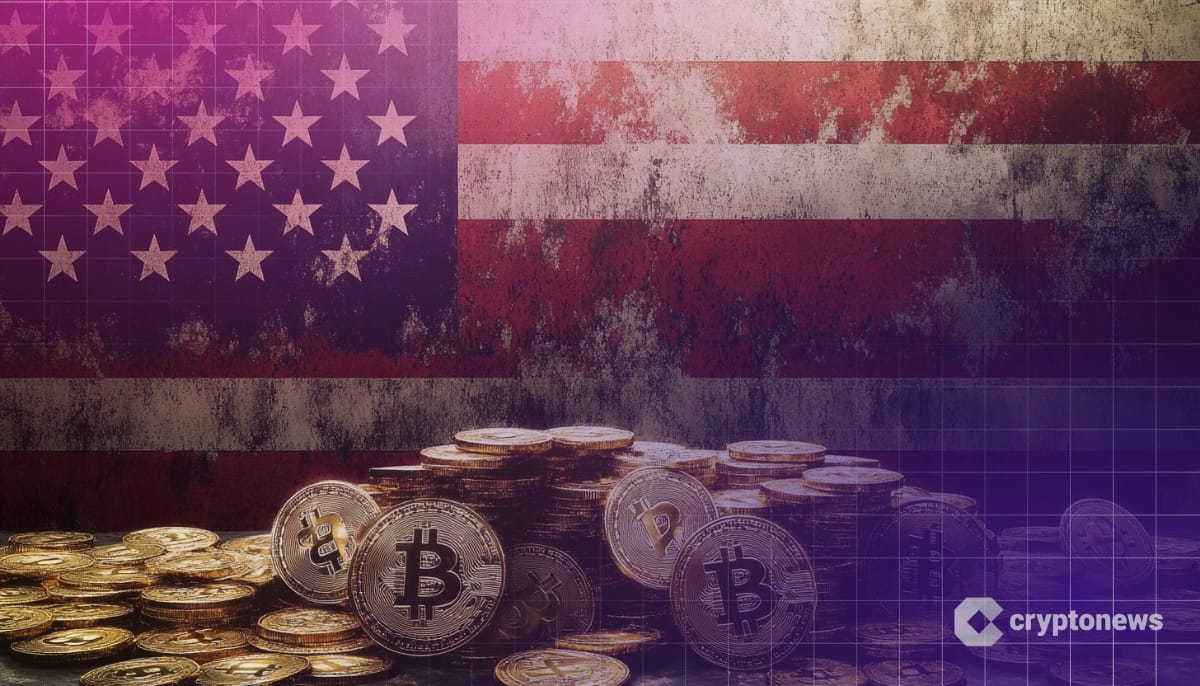Trump’s Strategic Bitcoin Reserve: Bold Promise or Uncertain Reality?

Key Takeaways:
U.S. President Donald Trump is under pressure to make good on his strategic Bitcoin reserve promise. While some states have proposed laws for a strategic Bitcoin reserve, experts are divided on whether this will happen at the fèderal level. If implemented, however, the reserve could push the BTC price much higher, they say.America’s new President, Donald Trump, is a late bloomer in the crypto universe, but his impatience with government bureaucracy has reliably primed him for the industry’s decentralization memo.
As he takes over the slow wheels of government, Trump is a man in a hurry with promises to keep for his cryptocurrency voters. The President has already checked off a big one, lining up a pro-crypto chair for the Securities and Exchange Commission (SEC).
Trump has also surrounded himself with crypto billionaires to help him dismantle government bureaucracy. And now, all eyes are on his promise to create a strategic Bitcoin reserve for America.
There is a notable difference of opinion on which way to take, with federal commissions and the courts traditionally lethargic about financial innovation on this turf.
The U.S. Supreme Court recently cleared the Justice Department to sell a $6.5 billion stash of Bitcoin it seized as proceeds of crime from the defunct Silk Road marketplace. It is a setback for Trump, who was eyeing the funds as a seed for his planned BTC reserve.
However, an overwhelmingly pro-crypto Congress, arm in arm with the “Crypto President” himself, is making good on a brave new world where the establishment will have to catch up.
At least 11 states, including Texas, Oklahoma, Ohio, Pennsylvania, and others, have taken the initiative to adopt Bitcoin as a reserve asset.
“It’s time for Texas to lead the way in establishing a Strategic Bitcoin Reserve,” Texas Senator Charles Schwetener wrote on X after filing the bill last week
“That’s why I filed SB 778, which, if passed and signed into law, would make Texas the first state in the nation to establish a Strategic Bitcoin Reserve,” he added.
The question buzzing on social media, however, is whether the strategic Bitcoin reserve will really happen at the federal level. Will other countries follow the U.S. example? How will this impact the Bitcoin price?
Silk Road Setback
In 2024, Senator Cynthia Lummis introduced the BITCOIN Act, a law that requires the United States government to buy up to one million Bitcoins in batches of 250,000 BTC over four years.
The goal is for the U.S. to own one million Bitcoins, or about 5% of the total fixed supply, funded from three sources, including Bitcoin taken by the government from criminals. The U.S. holds over 200,000 seized BTC.
The other funding options include the use of the profits of the U.S. central banking system returned to the Treasury by the Federal Reserve. The Senator also proposed buying Bitcoin using gains from the gold certificates held by the Treasury, whose value has reportedly swelled to $10 billion since 1973.
But the Silk Road ruling potentially sets a precedent that will work against plans for a strategic Bitcoin reserve.
The U.S. government seized 69,370 BTC from a hacker linked with the dark marketplace Silk Road in 2020. Earlier in 2013, authorities recovered about 50,000 BTC from Silk Road founder Ross Ulbricht.
Tim Popplewell, founder and CEO of digital asset advisory firm Scintilla, is uncertain about whether a BTC reserve will materialize under Trump’s presidency.
“While his proposal may align with growing recognition of Bitcoin as a strategic asset, the recent court ruling allowing the U.S. government to sell $6.5 billion worth of Silk Road BTC suggests a conflicting approach,” Popplewell said in an interview with Cryptonews.
He added:
“Historically, the U.S. government has opted to liquidate seized Bitcoin rather than hold it as a reserve, prioritizing fiat returns over digital asset accumulation. For Trump’s promise to materialize, a significant policy shift would be required to prioritize Bitcoin as a long-term national asset over immediate fiscal benefits, and such a move would likely face political, economic, and regulatory challenges.”
America already holds strategic reserves of commodities such as gold, grain, fuel, and oil. As stated in the BITCOIN Act, which Trump supports, his main aim for a BTC reserve is to aid economic stability, offer an innovative inflation hedge, and mainstream crypto assets into the U.S. financial system.
In any case, other countries have started to strategically accumulate Bitcoin. In 2021, El Salvador became the first country to adopt Bitcoin as legal tender and continues to buy BTC to hold in reserve. Bhutan has set up state-owned mining operations, keeping the mined Bitcoin in reserve.
For President Trump, the numbers look good for crypto in Congress on a bipartisan score. But there might be political storms ahead.
Trump has announced his intentions to shake up some commissions. His Department of Government Efficiency (DOGE) is also targeting some agencies with outright erasure.
Drastic proposals are likely to be fought by Democrats, whom outgoing President Joe Biden has warned to be vigilant against an oligarchic hostile takeover of government.
In the House of Representatives, it might be a matter of time before the class narrative takes precedence over points of convergence, including Bitcoin.
Speaking to Cryptonews, Sid Powell, CEO and co-founder of crypto lender Maple Finance, said inertia may get in the way of a formal Bitcoin reserve proposal, stating:
“Whether the rest of the party chooses to back him in this endeavor, remains unclear and will likely be driven by market sentiment at the time of the proposal.”
He also cited the Silk Road ruling as setting a precedent for liquidating seized Bitcoin rather than holding it.
The Urgent Case for a Bitcoin Reserve
Other pundits, however, struck an optimistic note. For Alex Buelau, chief technology and product officer at digital asset custody firm Parfin and Rayls, Bitcoin’s unique properties as a deflationary and globally recognized asset make it increasingly valuable over time.
Bitcoin’s astronomical rise over the past 10 years, soaring over 33,000%, shows how the U.S. Treasury can make the top cryptocurrency go to work for America, he says.
Factor in Trump’s wager about paying off America’s debt using BTC, and you got a strong case for a national reserve asset.
“The longer a country delays establishing such a reserve, the higher the cost will be, especially if another nation takes the lead. This dynamic incentivizes early action to avoid being priced out later,” Buelau told Cryptonews.
Buelau played down fears that the Silk Road ruling would work against establishing a reserve, arguing that it is a separate matter.
“These assets have been in government custody for years and have been gradually liquidated over time.”
Forest Bai, co-founder of Web3 investment firm Foresight Ventures, said Donald Trump’s vision for a Bitcoin reserve is an exciting prospect, a nod to the new administration’s forward-thinking approach to crypto.
More broadly, the proposal shows the potential for Bitcoin in national strategy. Bai said the Silk Road Bitcoin setback could pave the way for a more structured approach to holding digital assets, telling Cryptonews:
“Overcoming the economic and logistical challenges could lead to innovative financial policies, showcasing the U.S.’s leadership in the crypto space. With the right framework, this initiative could become a reality, enhancing the country’s position in global finance.”
Domino Effect and Price Rally
The U.S. is the world’s biggest economy and a geopolitical actor with unrivaled soft power. Its adoption of the benchmark cryptocurrency, bolstered by Bitcoin’s own market edge, is likely to have a domino effect, with other countries following Washington’s lead.
Experts say the demand introduced by this activity will positively impact the price of BTC.
Scintilla CEO Popplewell said America’s adoption of a BTC reserve would signal institutional validation at the highest level. It would boost investor confidence, and drive stronger retail and institutional demand.
“The announcement alone could trigger a sharp price rally as markets react to the perceived scarcity and heightened legitimacy of Bitcoin,” Popplewell explained, adding:
“Long-term, the reserve’s establishment could stabilize Bitcoin’s reputation as ‘digital gold’, encouraging global adoption, and potentially incentivizing other nations to follow suit, further driving up demand and price.”
Bitcoin’s price is driven by supply and demand dynamics. Buelau, the Parfin and Rayls cofounder, concurred that a U.S. lead in establishing a Bitcoin reserve would have a domino effect, driving up the BTC price.
“It’s important to note that Bitcoin’s supply is permanently capped at 21 million, meaning there can never be more than this amount in circulation,” said Buelau.
“As a result, countries, institutions, and individuals would be competing for the same finite supply, amplifying scarcity and further increasing Bitcoin’s value,” he added.
The post Trump’s Strategic Bitcoin Reserve: Bold Promise or Uncertain Reality? appeared first on Cryptonews.



